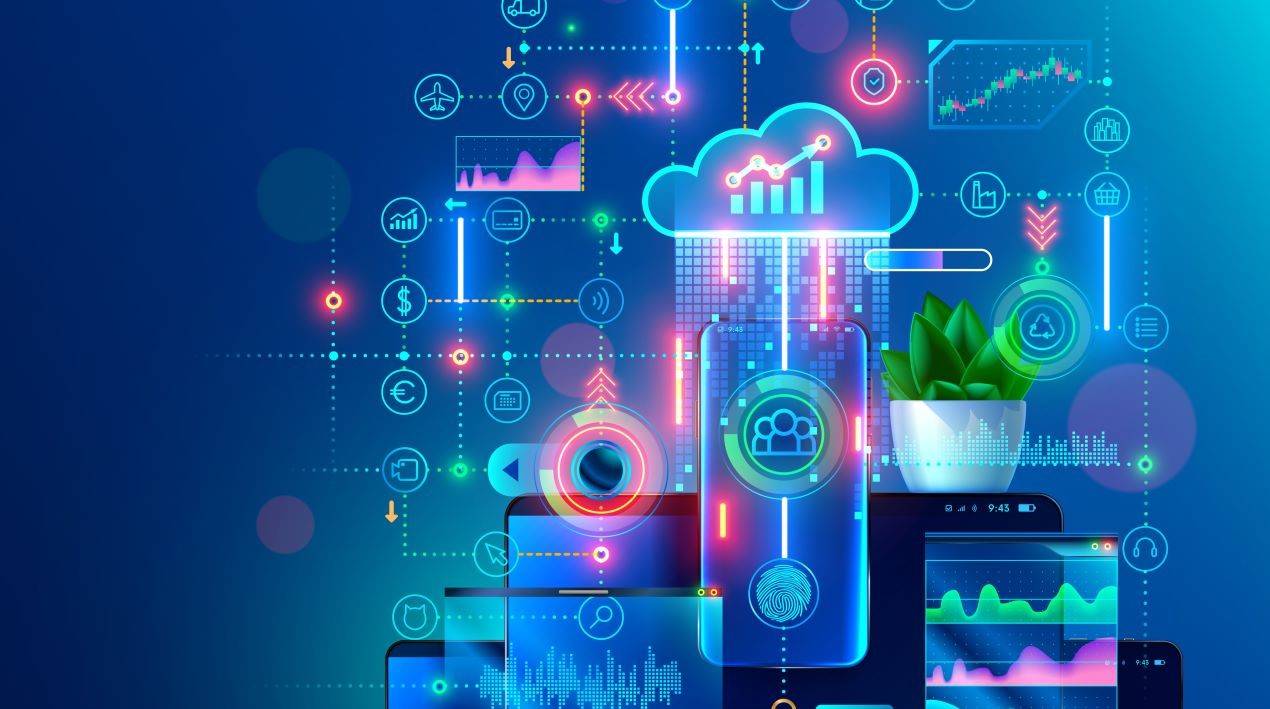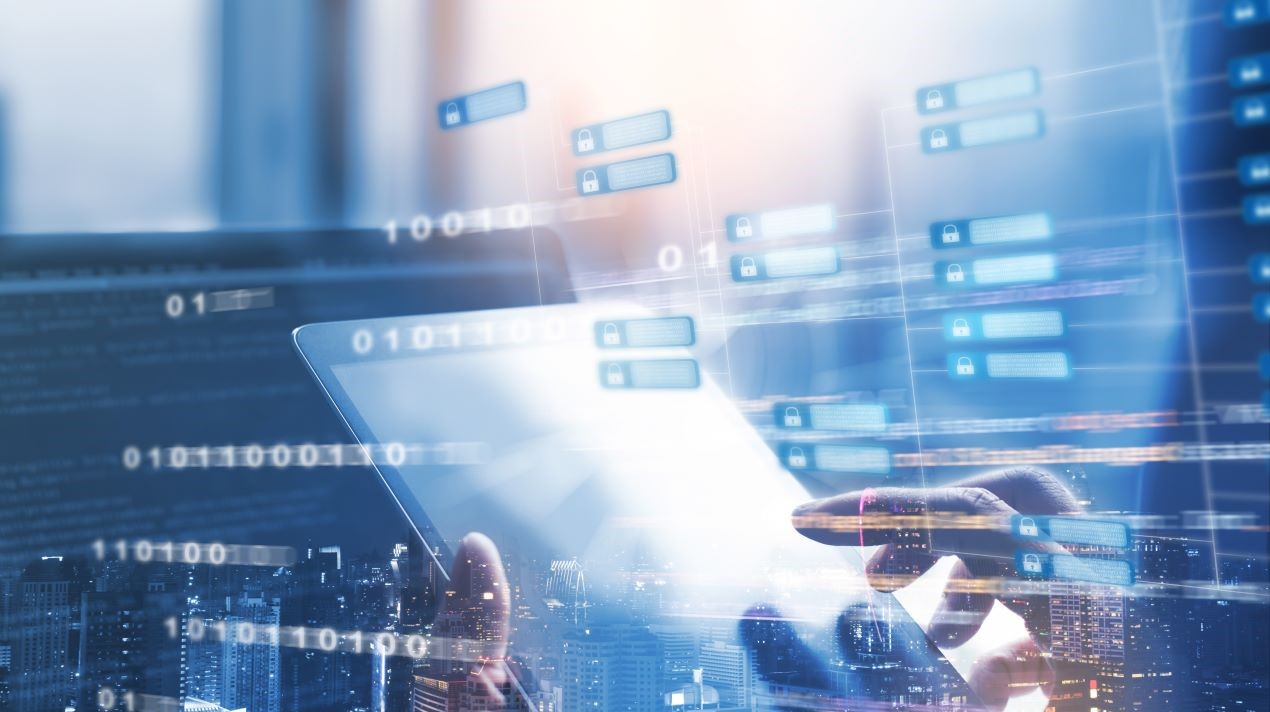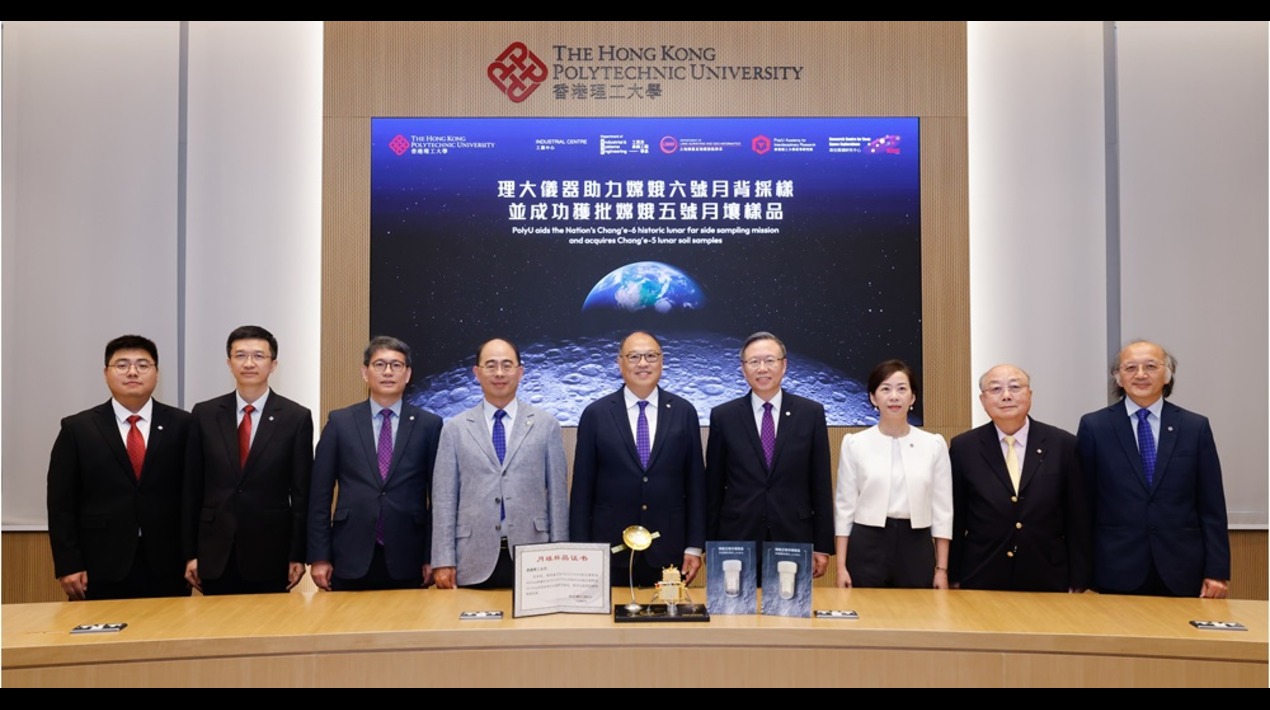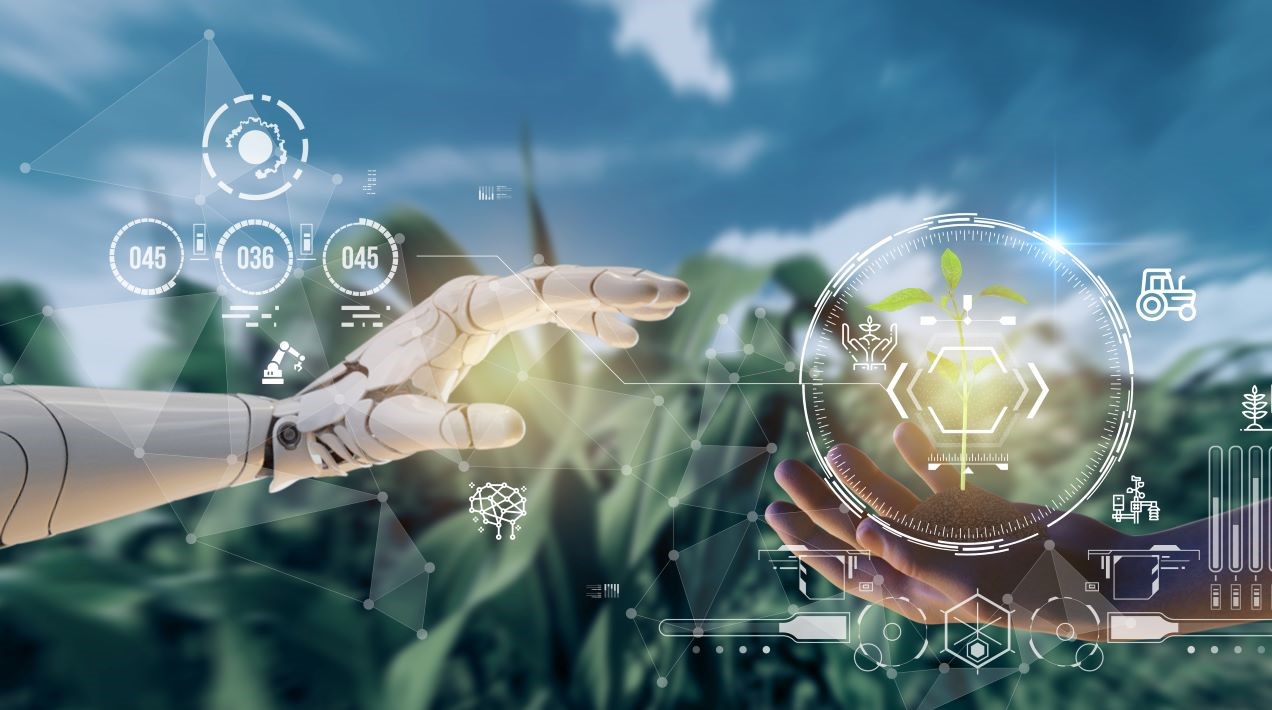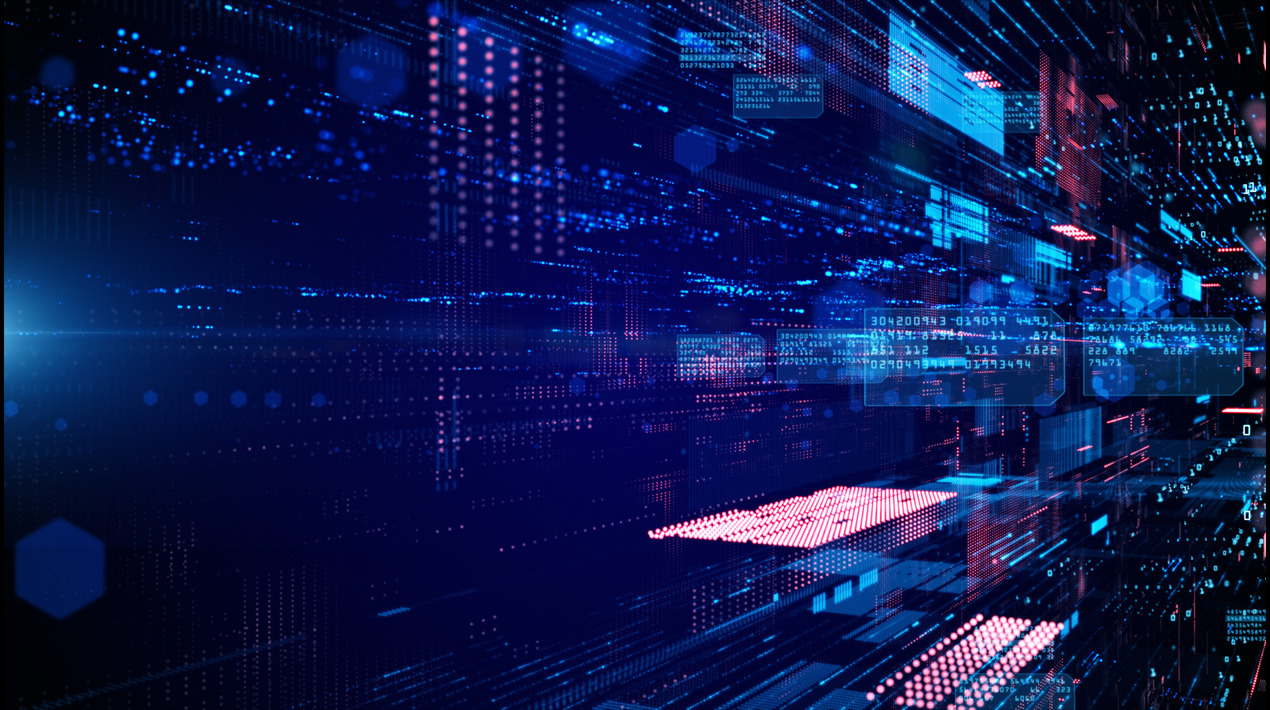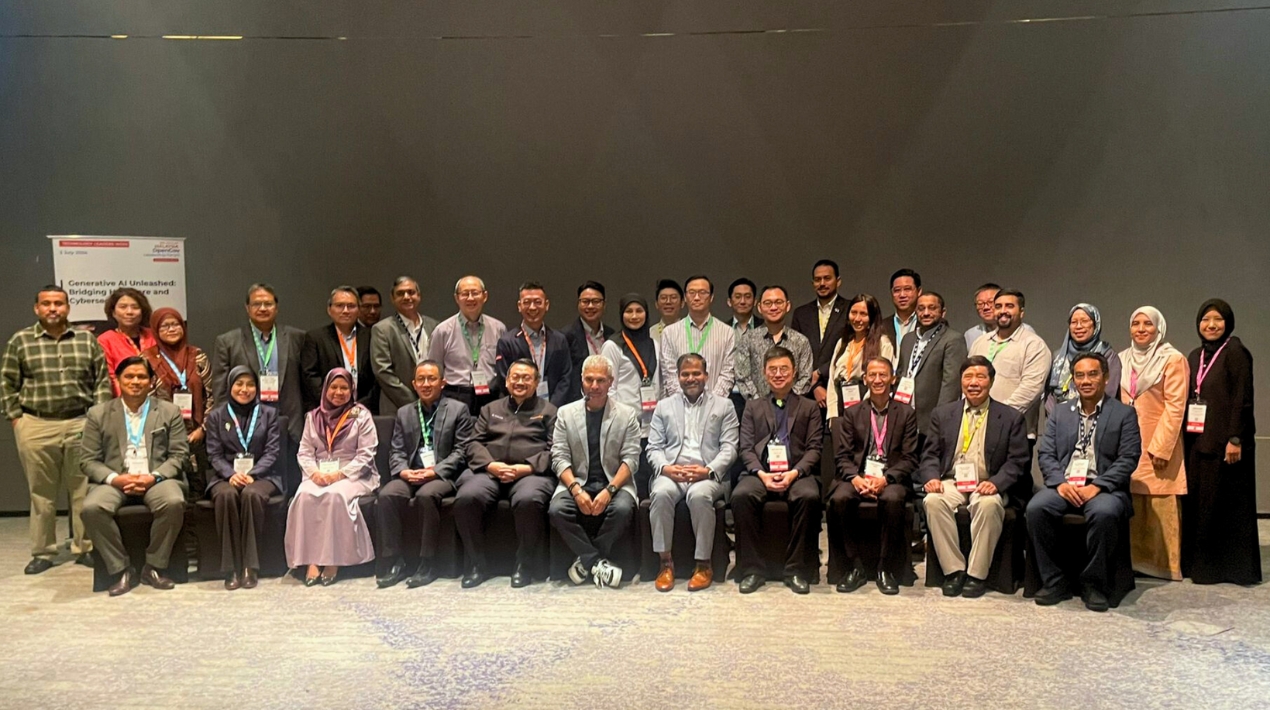
|
Getting your Trinity Audio player ready...
|
Generative AI, or Gen-AI, is a creative powerhouse in the tech world and its ever-curious nature expands the boundaries of technological possibilities. This intelligent tool can autonomously produce diverse content through sophisticated algorithms, acting like a digital companion that continually learns and generates images, text, and music.
 Generative AI acts as a catalyst for innovation across various industries, extending beyond traditional artistic applications and playing a crucial role in various domains. It aids in data synthesis by generating realistic data for training machine learning models and contributes to drug discovery by creating molecular structures for potential pharmaceuticals.
Generative AI acts as a catalyst for innovation across various industries, extending beyond traditional artistic applications and playing a crucial role in various domains. It aids in data synthesis by generating realistic data for training machine learning models and contributes to drug discovery by creating molecular structures for potential pharmaceuticals.
Additionally, Gen-AI enhances the development of realistic simulations for training autonomous vehicles and improving virtual environments, showcasing its adaptability and innovative potential across multiple fields.
The hardware that powers Gen-AI is essential in realising its imaginative outputs. Equipped with powerful GPUs and accelerators, it provides the computational muscle necessary for complex AI models to perform their tasks effectively.
Gen-AI’s transformative capabilities and expansive potential necessitate impenetrable infrastructure and vigilance. As Gen-AI and its hardware capabilities expand, concerns about potential vulnerabilities become more pressing. To unlock its full spectrum of innovation safely, it’s crucial to balance Gen-AI advancements with hardware developments and stringent cybersecurity measures. Robust safety measures and cybersecurity are imperative, acting as guardrails to ensure the ethical use and protection of data in an interconnected, data-centric world.
While pushing the boundaries of innovation, it is crucial to simultaneously address ethical considerations, data privacy concerns and the evolving cybersecurity landscape. The nearly limitless potential of Gen-AI warrants thorough investigation into its integration across various industries and domains.
 Potential challenges within the AI domain demand an open dialogue. Discussions should encompass real-world applications where Gen-AI redefines processes, enhances decision-making, and propels innovation in all sectors.
Potential challenges within the AI domain demand an open dialogue. Discussions should encompass real-world applications where Gen-AI redefines processes, enhances decision-making, and propels innovation in all sectors.
Emphasis should be placed on exploring the synergy between Generative AI and advanced hardware technologies, as powerful GPUs and accelerators enhance Gen-AI’s capabilities. Discussions should focus on the technical aspects of hardware optimisation to comprehend the intricate interplay between software innovation and hardware prowess in the realm of Generative AI.
Unlocking innovation with Gen-AI hinges on robust safety measures, including cybersecurity, to sustain its potential across industries. Integration into diverse applications demands a focus on ethical considerations, data privacy, and secure environments.
While Gen-AI offers unprecedented opportunities for creativity and innovation, addressing ethical, privacy, and security challenges is essential to realising its full potential. Through ongoing dialogue and collaboration, Gen-AI can revolutionise industries and pave the way for solving pressing global issues through technology and human ingenuity.
The 9th Malaysia OpenGov Leadership Forum on 3 July 2024 at Sofitel Kuala Lumpur Damansara looked at these themes in depth. Leaders from various sectors discussed the intersection of Gen-AI, hardware, and cybersecurity, highlighting collaboration and continuous learning. Case studies showcased Gen-AI’s versatility and transformative impact in healthcare, finance, and manufacturing.
The forum emphasised the importance of a balanced approach, coupling technological advancement with ethical considerations and robust security measures. This holistic perspective is essential for leveraging Gen-AI’s full potential while safeguarding against inherent risks.
Opening Remarks

Mohit Sagar, CEO and Editor-in-Chief at OpenGov Asia, clarifies that Generative artificial intelligence (Gen AI) is emerging as a critical tool, enhancing detection and defence mechanisms against sophisticated cyber threats. By analysing vast datasets, generative AI models can identify patterns and anomalies indicative of malicious activity, allowing for earlier and more precise threat detection.
“This technology is instrumental in developing advanced malware detection systems that recognise subtle signs that conventional methods might overlook,” Mohit says. “It can also enhance protection by simulating assaults for training purposes and analysing email communication patterns to identify phishing attempts.”
In incident response, AI automates the investigation and categorisation of security issues, facilitating faster containment and resolution. Moreover, generative AI’s predictive analytics capabilities allow it to foresee future threats, enabling organisations to implement proactive security measures.
Generative AI’s capabilities extend to fortifying defences against adversarial machine learning threats and enhancing authentication systems. However, these advancements also present challenges, as hackers can exploit generative AI to craft more sophisticated cyberattacks. Thus, while generative AI significantly bolsters cybersecurity efforts, it also raises ethical questions that must be addressed to prevent misuse and ensure its benefits outweigh potential risks.
Parallel to advancements in AI, hardware innovation is making substantial contributions to cybersecurity. Improved hardware security features, enhanced resilience against assaults, and better performance collectively elevate cybersecurity capabilities. Innovations such as specialised security chips and more powerful central processing units (CPUs) enable faster and more efficient data handling, crucial for real-time threat detection and response.
Hardware Security Modules (HSMs) and Trusted Platform Modules (TPMs) offer robust encryption and secure key management, ensuring that sensitive information remains protected from unauthorised access. Additionally, hardware-based security features like hardware root of trust and fingerprinting add layers of defence, making it more challenging for attackers to penetrate systems.
Enhanced hardware, like powerful GPUs and specialised AI accelerators, boosts generative AI models’ performance, allowing them to process and analyse large data volumes at unprecedented speeds. This collaboration enables real-time threat detection and response as AI quickly identifies anomalies and potential threats in complex network environments. Hardware-based security features, such as secure enclaves and hardware root of trust, provide a robust foundation for AI-powered security applications, ensuring data integrity and protection against tampering.
“These hardware advancements support more complex security protocols, enhance the functionality of security software and offer superior protection,” Mohit elaborates. “Cutting-edge hardware forms a solid foundation for cybersecurity measures, ensuring systems are better equipped to combat emerging threats.”
Organisations in Malaysia, like many others globally, face significant cybersecurity challenges. Common issues include phishing and social engineering attacks, where deceptive emails and messages trick employees into revealing sensitive information or installing malware. Ransomware attacks are another growing threat, with data being encrypted and held hostage for ransom. Additionally, Advanced Persistent Threats (APTs) are prolonged and targeted cyberattacks aimed at stealing data or compromising systems over extended periods.
Outdated systems and software create exploitable vulnerabilities, making them easy targets for modern cyberattacks. Phishing and ransomware attacks exploit these weak security measures, while the lack of awareness and training among employees further increases their susceptibility to cyber threats.
Moreover, many organisations lack adequate cybersecurity tools and resources to manage these threats effectively. This situation is exacerbated by a shortage of qualified cybersecurity specialists, making it difficult to implement and manage advanced security measures. These combined factors leave organisations vulnerable to various cyber threats, highlighting the urgent need for improved cybersecurity infrastructure and training.
Regulatory compliance poses difficulties as organisations must adhere to stringent data protection regulations and navigate complex legal frameworks. This requires continuous monitoring and updating of policies to ensure adherence to ever-evolving laws.
The rapid adoption of digital transformation initiatives, while beneficial for business operations, can lead to security breaches if new technologies are implemented without proper security assessments. Comprehensive risk evaluations are essential to prevent vulnerabilities.
Financial constraints often hinder investment in advanced cybersecurity solutions, exposing businesses to sophisticated attacks. Limited budgets force companies to prioritise immediate operational needs over long-term security investments.
Addressing these challenges requires a multifaceted approach, including enhanced user training, infrastructure improvements, workforce development, and strategic cybersecurity technology investments.
Emerging trends in generative AI and hardware cybersecurity solutions are transforming digital security. Generative AI is used for predictive analytics and threat modelling, allowing for proactive security measures. Advancements in specialised AI chips and high-performance computing architectures enhance predictive capabilities, enabling real-time threat detection. AI-driven systems autonomously detect, analyse, and respond to security incidents, minimising response times and mitigating potential damage.
AI-powered authentication and access control systems using biometric authentication methods are becoming more prevalent, utilising hardware to manage biometric data and ensure secure user identification.
“The convergence of generative AI and hardware innovations advances cybersecurity by enabling faster, more accurate threat detection, enhancing data protection through secure computing environments, and improving user authentication processes,” Mohit reiterates. “As generative AI and hardware technologies evolve, their combined impact is expected to strengthen cybersecurity defences significantly, providing a proactive and dynamic approach to safeguarding digital assets.”
Welcome Address

Abdul Hakim, Executive Director of Digital Workplace Solutions at Lenovo, echoed Mohit’s sentiments, acknowledging that throughout history, technology has exponentially accelerated changes in the workplace. In today’s landscape, one of the key drivers being harnessed is Generative AI. This cutting-edge technology offers numerous benefits, including economic growth, technological advancement and increased creativity.
In Malaysia, Generative AI can significantly boost economic development by enhancing productivity and opening new market opportunities. It also promotes innovation across various sectors such as finance, education and well-being.
Gen-AI can analyse vast datasets in healthcare to identify patterns, predict disease outbreaks, customise treatment plans, and even assist in complex surgeries through precision robotics. In finance, it can improve risk assessment, fraud detection, and customer service by providing personalised recommendations and automating routine tasks. In education, Gen-AI can create customised learning experiences, develop interactive educational content, and provide real-time feedback to students.
Additionally, Gen AI can unleash unprecedented creativity, enabling artists, writers, and musicians to explore new horizons and create unique works. For artists, it can generate new visual styles, assist in design, and create entirely new pieces. Writers can brainstorm ideas, develop plotlines, and refine their writing with AI assistance. Musicians can experiment with new sounds, compose music collaboratively with AI, and even generate entire compositions autonomously.
At Lenovo, this vision is embodied in Lenovo Care of One™, a Generative AI delivery platform designed to enable hyper-personalised and productive workplace experiences. By leveraging the power of Gen AI to tailor solutions to individual needs, this platform enhances productivity and satisfaction, creating an environment where employees can work more efficiently and creatively, unlocking their full potential.
This approach not only streamlines workflows but also fosters innovation and collaboration, allowing employees to focus on high-value tasks and strategic initiatives, Lenovo Care of One™ transforms the workplace into a dynamic and adaptive space that evolves with the needs of its users.
While acknowledging the significant benefits of Generative AI, Abdul stresses the importance of addressing accompanying challenges, particularly in ensuring its responsible and ethical use, with cybersecurity being a primary concern.
“Cyber threats are prevalent today, and integrating Gen-AI into various systems and applications can create new vulnerabilities,” he cautions. “Malicious actors could exploit these vulnerabilities to launch cyberattacks, steal sensitive data, or manipulate AI-generated content for nefarious purposes. Therefore, having robust cybersecurity measures in place is paramount.”
Abdul underscores the critical integration of Generative AI with state-of-the-art hardware technologies. This strategic alignment aims to leverage advanced hardware such as powerful GPUs and accelerators to augment the capabilities of Generative AI, enabling enhanced performance and functionality across various applications.
Leveraging advanced hardware can significantly boost the performance and efficiency of Gen-AI models, enabling them to process larger datasets, generate more complex outputs, and operate in real-time. High-performance GPUs and accelerators can handle the intensive computational demands of deep learning algorithms, reducing training times and improving the accuracy of AI-generated results.
Abdul believes that Generative AI has vast potential to fuel innovation, economic growth, and creativity in Malaysia and globally. However, harnessing its benefits necessitates a deliberate strategy that addresses critical cybersecurity and ethical challenges to ensure responsible implementation.
“This balanced approach will enable societies to benefit from the transformative power of Generative AI,” he concludes “ It will the way for a future where technology and humanity coexist harmoniously and safely.”
In Conversation with

Dato’ Ts Dr Haji Amirudin Abdul Wahab, Chief Executive Officer CyberSecurity Malaysia acknowledges that digital transformation is imperative and, given the rapid pace of technological advancement, it must be viewed as an ongoing endeavour for improvement.
Organisations must continuously refine and adjust their digital strategies to maintain competitiveness and relevance, particularly in the realm of artificial intelligence (AI). This evolution demands constant vigilance, agility, and a forward-thinking mindset, as it is not a one-time initiative but a constant journey of adaptation and growth.
AI in Digital Transformation has emerged as a crucial component in reshaping the landscape in the evolving business environment. Organisations, driven by technological advancements, are increasingly seeking to harness the power of AI to enhance operational efficiency, extract valuable insights from data, and deliver exceptional services to their customers.
Dr Amirudin agrees that AI is a transformative force for businesses across sectors and its potential to drive innovation, efficiency, and competitive advantage is undeniable. AI can automate mundane tasks, provide insights through data analysis, and enhance decision-making processes.
This coordination between AI and business processes has fueled a change in thinking, allowing businesses to redefine their operational strategies, customer interactions, and value propositions, heralding a new era in digital transformation.
“The intersection of AI and digital transformation presents many possibilities, from streamlined operations and increased productivity to elevated customer experiences and inventive business models. Yet, the integration of AI comes with its set of challenges,” is Dr Haji Amirudin’s caveat.
Many enterprises face the hurdle of fully leveraging AI’s capabilities, as effective implementation demands both technical proficiency and a strategic alignment of AI functionalities with business objectives. Achieving success in AI implementation necessitates a deep understanding of AI and digital transformation, a clearly defined vision, and a strategic integration of AI into digital transformation initiatives. This integration process involves overcoming learning curves, addressing ethical concerns, and continually adapting to the dynamic technological environment.
Organisations need to adopt a proactive stance to outpace emerging technologies and potential threats, which involves ongoing monitoring, investment in advanced security solutions, staff training, and cultivating a culture of security awareness. Transitioning towards a future driven by intelligent automation, characterised by efficiency, agility, and innovation, demands a multifaceted strategy.
To ensure the effective operation of Gen-AI systems, robust hardware, including advanced GPUs and TPUs, plays a crucial role. These powerful processing units provide the computational muscle needed for training and deploying complex AI models, facilitating faster and more efficient operations. Leveraging the synergy between AI and hardware to its fullest potential is imperative, ensuring that the infrastructure can meet the demanding requirements of modern AI applications.
Moreover, cybersecurity remains a critical concern as AI systems become more prevalent. Protecting against exploits and ensuring the ethical use of AI are paramount. Cybersecurity must be embedded into the core of digital transformation strategies, with robust measures to protect data and systems from potential threats. This includes deploying advanced security protocols, conducting regular audits, and staying informed about cybersecurity trends and threats.
“Digital transformation, powered by AI and fortified by resilient hardware and cybersecurity, empowers organisations to stay competitive in today’s rapidly evolving technological realm,” he concludes. “By continually enhancing their digital strategies, aligning AI with business objectives, and prioritising a secure environment, organisations can unlock unprecedented levels of efficiency, agility, and innovation.”

Abdul Hakim, Executive Director of Digital Workplace Solutions at Lenovo, reaffirms Lenovo’s strong commitment to advanced hardware. He reiterates that Lenovo is dedicated to providing high-performance computing solutions essential for the seamless integration of AI technologies.
“Our advanced hardware solutions are designed to meet the complex demands of modern AI applications, ensuring that organisations can leverage the full potential of AI for innovation and growth,” reveals Abdul.
Lenovo’s dedication to cutting-edge technology and robust cybersecurity aligns perfectly with the goals of the Malaysia OpenGov Leadership Forum. By supporting such initiatives, Lenovo aims to foster an environment where AI can thrive safely and responsibly, driving technological progress and economic growth in Malaysia and across the world.
Abdul explains that integrating generative AI with advanced hardware offers substantial potential to enhance cybersecurity by leveraging their unique capabilities to detect and respond to threats more effectively. This synergy enables cybersecurity systems to become more proactive, efficient, and resilient against the evolving landscape of cyber threats. He outlines several critical collaboration avenues to explore.
Enhanced Threat Detection
Generative AI excels in analysing vast amounts of data, identifying patterns, and making intelligent decisions in real-time. By training AI models to recognise anomalies and predict potential threats, organisations can implement proactive measures to prevent attacks before they occur.
Automated Response and Incident Handling
Supported by high-performance computing and data processing, AI-driven systems can swiftly and effectively execute automated response mechanisms, ensuring prompt incident handling and minimising the impact of cyberattacks on organisational operations.
Endpoint Security and Monitoring
Generative AI enhances endpoint security by creating simulated environments to identify network anomalies and detect vulnerabilities, testing the resilience of endpoint devices against potential weaknesses. It provides robust and secure configurations for endpoint devices, with hardware-based security features like secure boot and hardware encryption, adding an extra layer of protection against unauthorised access and malicious activities.
Data Privacy and Security
Generative AI can generate synthetic data that closely mimics accurate data, minimising the risk of data breaches and unauthorised access. This synthetic data is instrumental for testing and training AI models without exposing sensitive information, thereby strengthening data privacy measures.
Furthermore, advanced encryption and secure coding practices ensure secure data storage and processing. Hardware security modules (HSMs) and trusted platform modules (TPMs) play a critical role in providing hardware-based encryption and secure key management, effectively protecting sensitive data from potential cyber threats.
Abdul is convinced that the collaboration between generative AI and advanced hardware holds immense promise for revolutionising cybersecurity. By enhancing threat detection, automating response mechanisms, improving endpoint security, ensuring data privacy, and analysing continuous monitoring, this integration empowers organisations to stay ahead of cyber threats and protect their digital ecosystems effectively.
Being asked to share their thoughts on the issue, sparked an engaging dialogue among participants, bringing forth a variety of perspectives on AI’s transformative potential.
One audience member from an FSI company remarked, “Ultimately, it’s all about data because data presents unique challenges. Everything else follows naturally. If we reflect on our primary concerns, they revolve around data security, integrity, and accessibility.”
Echoing this sentiment, an aviation expert in the audience added, “As AI continues to evolve, so too must our strategies and approaches. Continuous learning, openness to new ideas, and flexibility in our methods will be key to successfully navigating the changes brought about by generative AI.”
These insights collectively highlight a broader consensus on the role of generative AI in transforming industries. While challenges remain, such as ensuring data security and adapting to evolving AI capabilities, the potential benefits of integrating AI – when done thoughtfully and collaboratively – promise significant advancements and opportunities for growth across various sectors.
Closing Remarks
Abdul Hakim appreciates the collaborative approach to addressing the current issues surrounding Generative AI transformation. He acknowledges the Malaysia OpenGov Leadership Forum for its pivotal role in promoting awareness of advanced hardware and facilitating discussions on best practices for integrating Generative AI across diverse sectors.
Abdul recognises that the forum provides a valuable platform for industry leaders, policymakers, and technology experts to exchange ideas and insights. “Platforms like these are essential for fostering a deeper understanding of how advanced hardware can unlock the full potential of Generative AI. They also promote the development of robust cybersecurity frameworks and ethical guidelines that ensure AI technologies are used safely and responsibly.”
He emphasises the significance of ongoing learning and collaboration to navigate the dynamic AI landscape effectively. By pooling knowledge, staying updated on the latest advancements, and adopting best practices, organisations can harness Generative AI’s transformative potential to drive innovation and economic growth and safeguard digital ecosystems.
Abdul believes that addressing cybersecurity is crucial to unlocking the innovation potential of Generative AI. As this technology integrates into diverse applications, discussions must prioritise ethical considerations, data privacy, and strategies for ensuring a secure environment. Robust cybersecurity measures are essential to mitigate risks and sustain Generative AI’s innovative potential across industries.
Moreover, Abdul notes that such forums can stimulate critical thinking and proactive measures among stakeholders to mitigate risks and enhance the benefits of Generative AI. He stresses the importance of developing a culture of continuous improvement, where organisations are not just reactive but proactive in addressing cybersecurity challenges. This involves regular updates to security protocols, investing in the latest security technologies, and fostering a culture of awareness and responsibility among employees.
Abdul points out that integrating Generative AI with advanced hardware is not just about enhancing capabilities but also about creating synergy between different technological advancements. This integration can lead to more efficient processes, higher-quality outputs, and the ability to tackle complex problems more effectively.
Abdul envisions a future where Generative AI contributes to all sectors, driving extraordinary levels of innovation and efficiency. However, he is convinced that this future can only be realised through an evaluated approach that prioritises ethical considerations and cybersecurity.
Abdul reiterates that the Malaysia OpenGov Leadership Forum will go a long way in shaping the future of Generative AI in Malaysia. He encourages all stakeholders to remain actively engaged in discussions and collaborate in forging a secure, innovative, and inclusive digital future.
“Through collective efforts and a commitment to ethical practices, we can pave the way for a future where Generative AI enhances our lives and contributes to a more prosperous and technologically advanced world,” he concludes.




